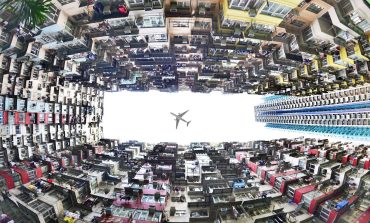The best part of high school chemistry class many years ago was mixing two combustible chemicals and getting a nice violent reaction.
It was fun to watch.
Donald Trump …
Meet Shigeru Ishiba.
When Japanese Prime Minister Ishiba meets President Trump meet on February 7 in Washington, alliance managers will try to orchestrate an exchange of platitudes and declarations that the US-Japan relationship has never been stronger – and is destined for even greater heights.
But one still sort of hopes for the high school chemistry class explosion. Even if not likely, it’s not unthinkable.
President Trump has a businessman’s sense of things along with doubts that Japan – or any other US ally – is doing enough to defend itself.
During the first Trump firm, then-Prime Minister Shinzo Abe “tamed” the president via a mixture of flattery and well-intentioned – and somewhat successful – efforts to improve Japan’s defenses. Abe was also the driving force behind the idea of a “free and open Pacific” – intended to rally the US and other free nations against an expansionist People’s Republic of China.
But Ishiba is no Abe, who was a once-in-a-generation statesman when it came to Japan’s foreign affairs.
Oddly enough, Abe didn’t even like the United States all that much. He believed that Japan had been tricked into World War Two and that the victorious Americans had imposed an unfair constitution unsuitable for Japan and the Japanese.
But Abe understood that Japan’s deeper interests and its security, if not survival, required a solid alliance with the US.
He kept his other thoughts to himself.
As for Ishiba …
He doesn’t have anywhere near Abe’s influence. Ishiba wasn’t elected because he was popular, but because much of the ruling Liberal Democratic Party saw supporting him as a way to stick it to the late Abe’s party faction.
Ishiba also hasn’t bothered to hide his resentments, unlike Abe.
He complains about the Japan-US relationship being unequal.
Of course it is. The United States has agreed to sacrifice its service members’ lives to protect Japan – while Japan has made no corresponding promise to America.
And young Japanese won’t even join the JSDF in necessary numbers. Japan’s military missed recruitment targets by 50% last year, and regularly misses them by 20%.
Ishiba also is unhappy with the US-Japan Status of Forces Agreement (SOFA), believing it gives Japan third-world treatment while allowing US troops to run wild in Japan without fear of punishment. Neither is true.
Some SOFA modifications may be in order – but in both directions. US forces often have to leave Japan to train to defend Japan despite a SOFA guarantee of adequate training areas and freedom to conduct necessary training in Japan. Ishiba ought to be complaining to his own government officials about about that.
In other instances, after Trump’s election last November Ishiba spoke of doing “horse trading” with the president.
This sort of combative approach is ill-advised – especially for a country with a modest, undersized military that is overwhelmingly dependent on the United States for protection in a very dangerous neighborhood that includes China, Russia and North Korea.
If Ishiba enters the meeting with President Trump with a chip on his shoulder, or intending to demonstrate “toughness” for a Japanese audience, it will not be well received by Trump, or by many Americans, friends of Japan included.
We’ll know soon enough what happens when Ishiba and Trump meet.
A chemistry-class sort of conflagration would be entertaining, but there’s too much at stake.
Resentments can destroy nation-to-nation relationships just as they do person-to-person ones.
Both sides will be better off with an uneventful meeting – where each side expresses appreciation for the other while promising to move the alliance forward.
Afterward, relevant officials and officers on both sides – hopefully the right ones, with experience – can get together and do what’s necessary for both US forces and the Japan Self Defense Force to be able to fight, both by themselves and together.
Getting this right is all that matters and there’s plenty to be done.
Without Japan, the US would be hard pressed to maintain its position in Asia. Without the US, Japan would have no chance at all.
Abe knew this.
Does Ishiba?
Colonel Grant Newsham (US Marines – Ret.) is the author of When China Attacks: A Warning to America.

